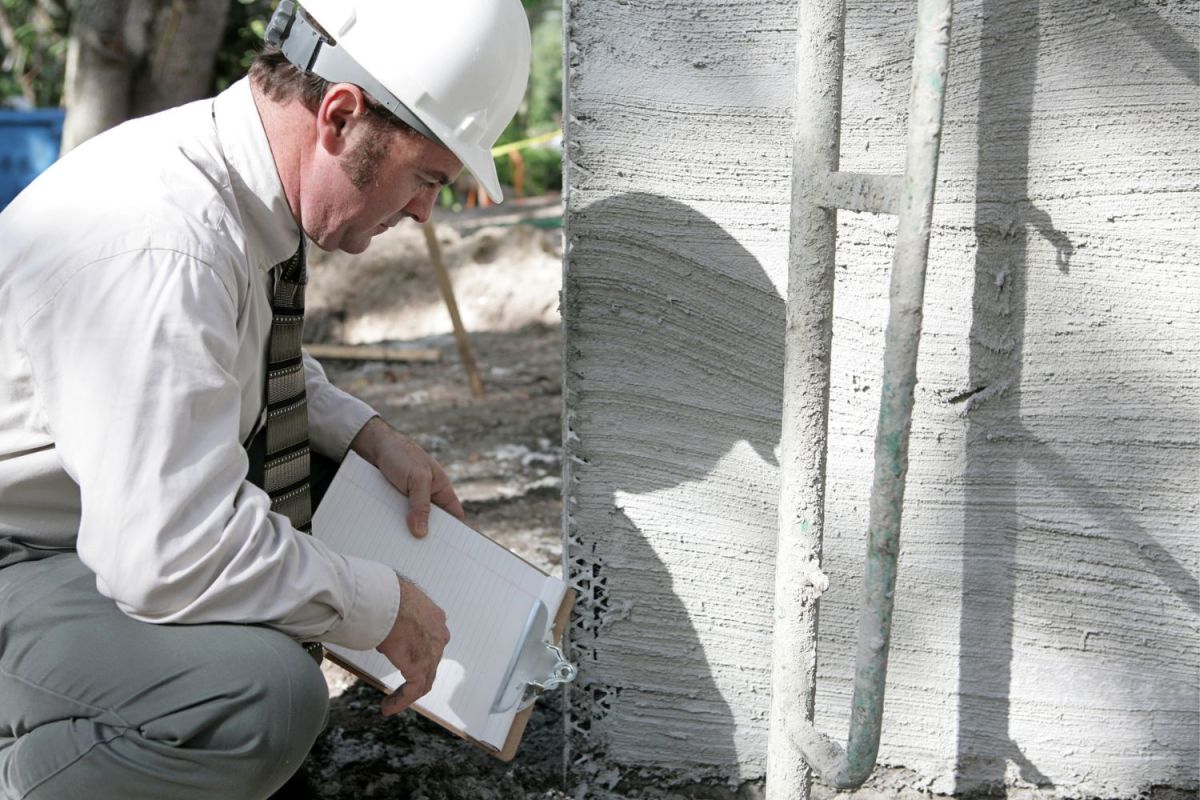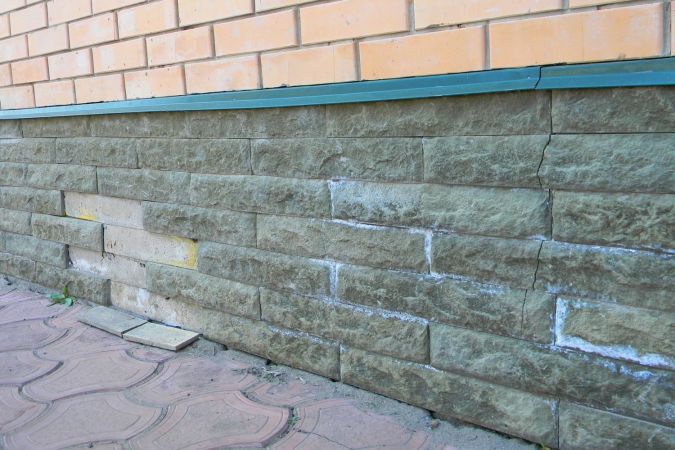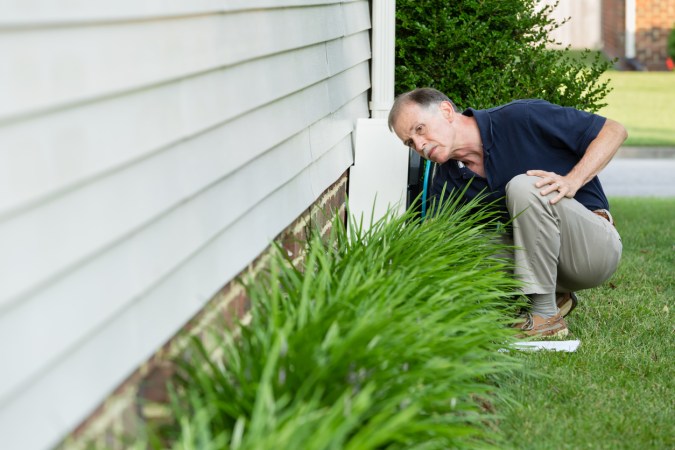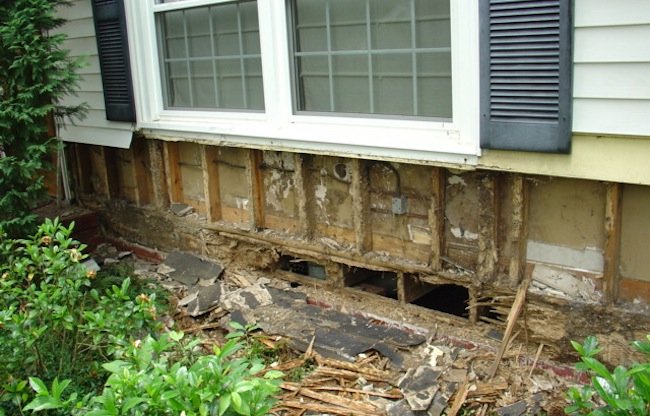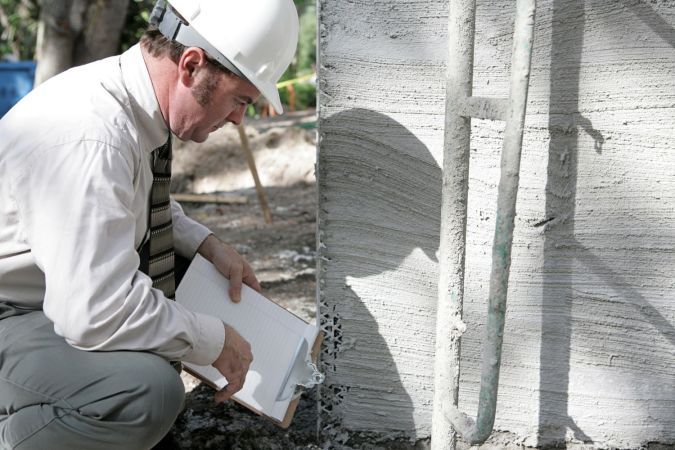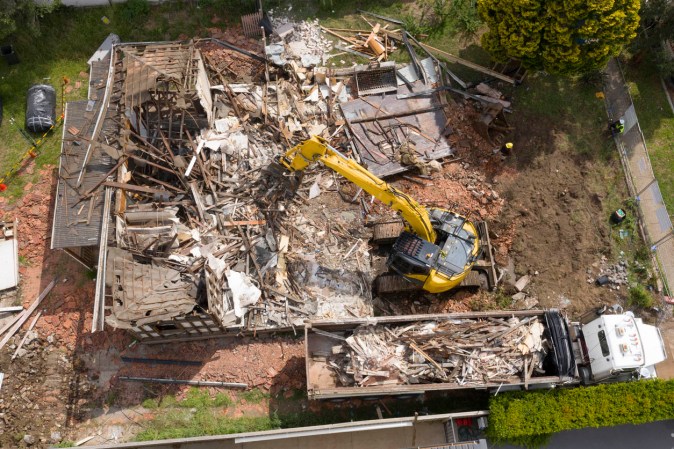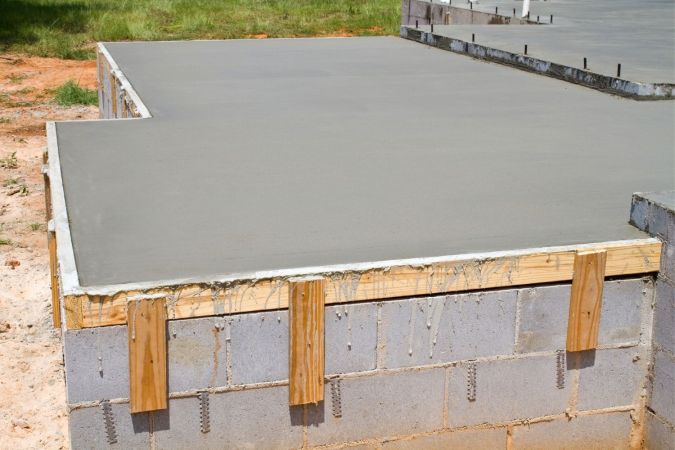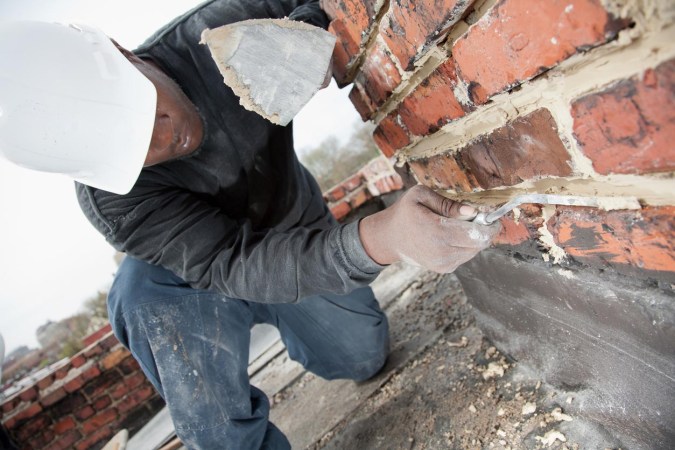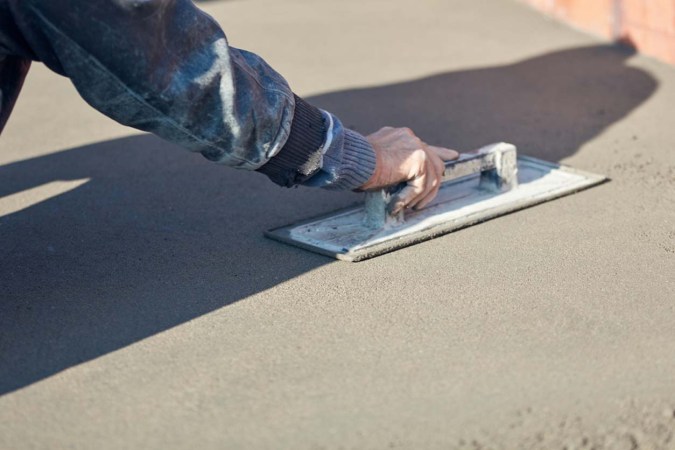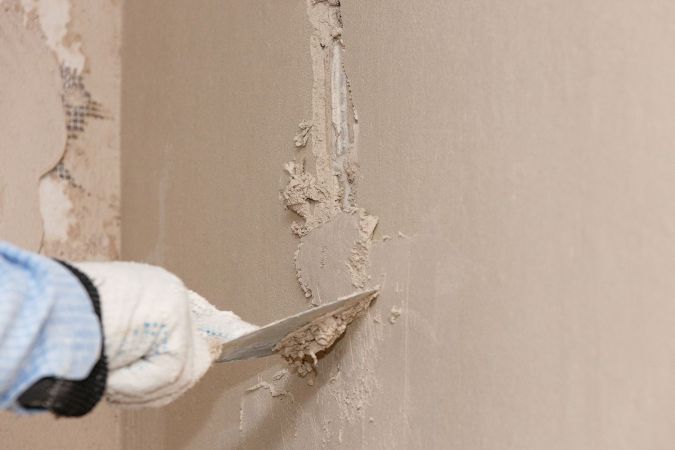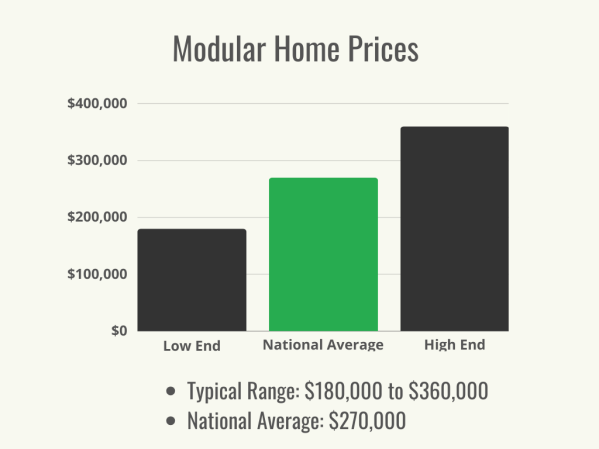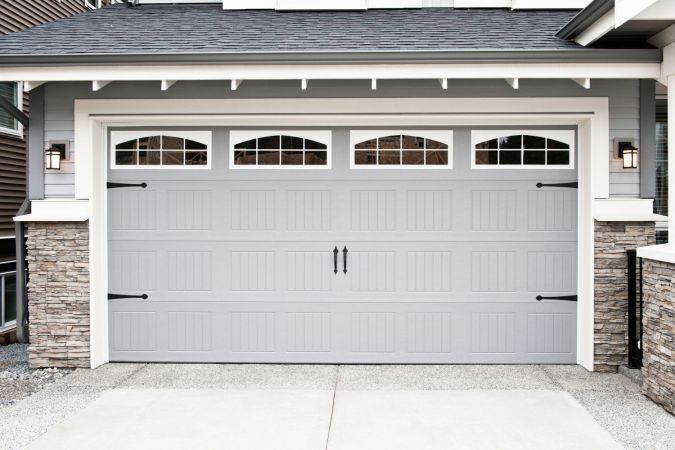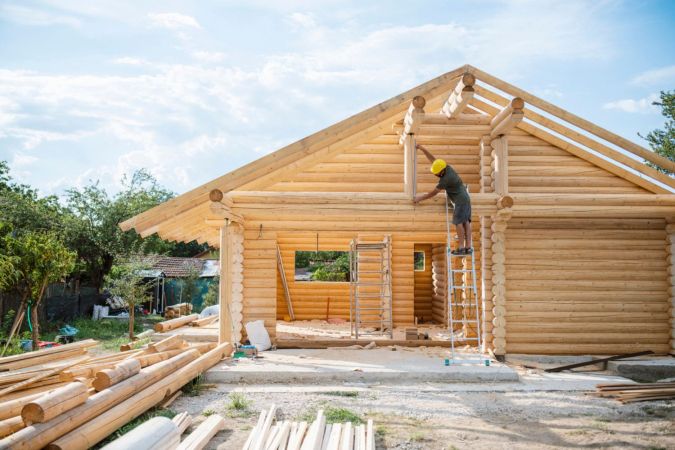We may earn revenue from the products available on this page and participate in affiliate programs. Learn More ›
Highlights
- The average foundation inspection cost range is $300 to $3,000, but homeowners often spend about $600.
- The biggest factors in calculating the cost of a foundation inspection are the foundation size, type, and accessibility, in addition to labor rates and the cost of permits.
- Obvious signs of a foundation problem (horizontal cracks, water leaks, and bowing walls) and real estate transactions are the two most common reasons for a foundation inspection.
- Homeowners are encouraged to do a visual inspection of their home’s foundation each month, but a professional inspection by someone with structural knowledge is recommended and sometimes required during the process of buying or selling a home.
A home’s foundation supports the weight of the structure and protects the home by keeping out soil, moisture, and pests. However, the foundation can become damaged over time, especially if the property doesn’t have proper drainage. A quick DIY foundation check can help homeowners identify obvious cracks, leaks, or other foundation damage, though it may not pinpoint the cause. Instead, a structural engineer foundation inspection may be needed to reveal more serious issues that require professional house foundation repair.
“I conduct a visual inspection to evaluate the inside and outside of the home and spot current and potential damage,” explains Tim Tracy, sales trainer at Groundworks, a nationwide foundation repair and water management solutions provider. “For example, exterior damage like a sunken driveway could mean foundation problems are happening or will develop.”
But what is the cost of such an inspection? According to Angi, a home foundation inspection can range in cost from about $300 to $3,000, depending on the size and complexity of the foundation. Typically, a homeowner will pay about $600 for a foundation inspector to assess whether there are any foundation problems. The inspector’s report will provide details about any issues that need to be addressed by foundation repair contractors.
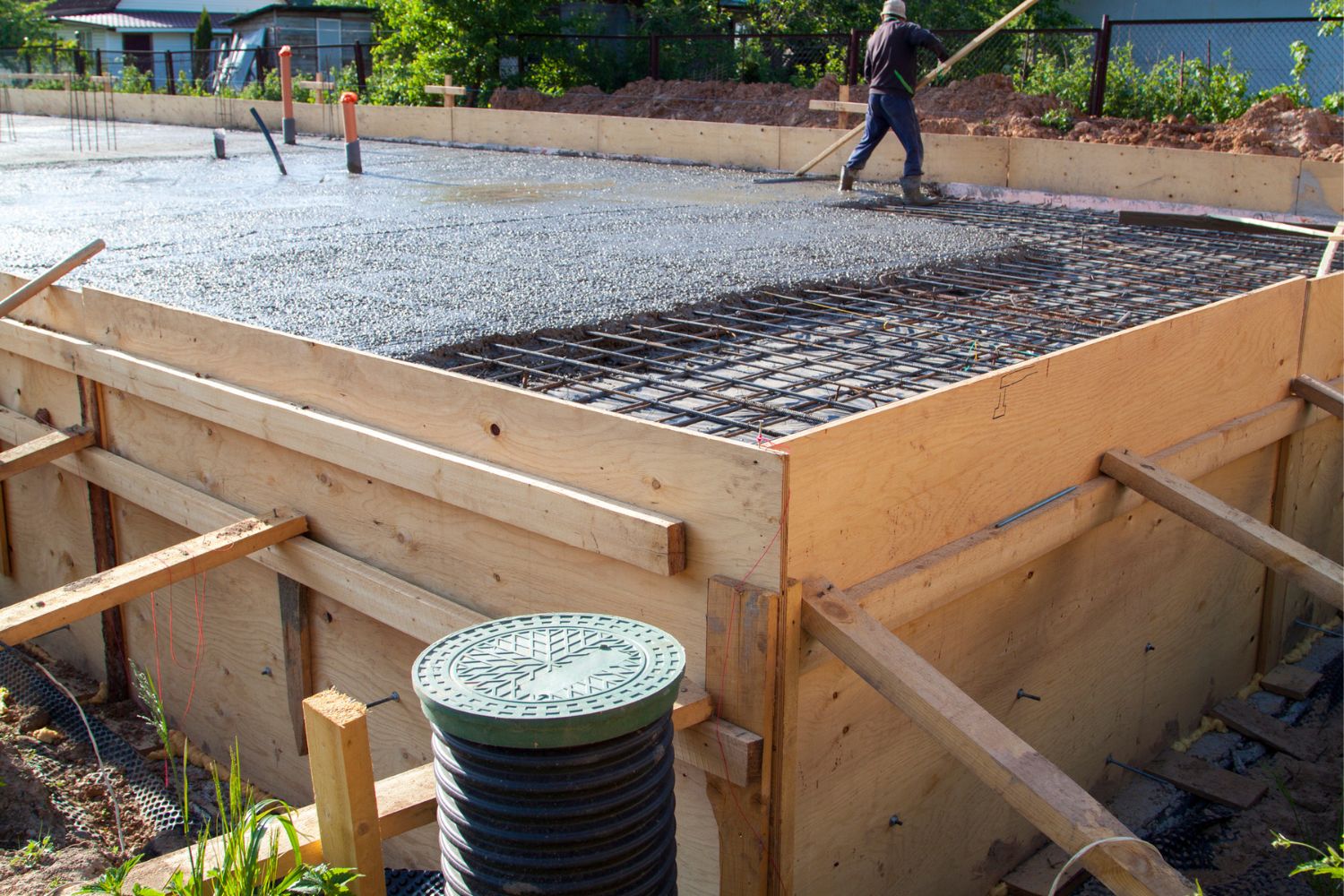
Factors in Calculating Foundation Inspection Cost
There are several important factors for homeowners to consider when budgeting for the cost of a foundation inspection. Foundation inspection services may increase or decrease in cost depending on the foundation size, type, accessibility, and complexity. Additionally, the geographic location and local labor rates can also influence the cost of a foundation damage inspection.
Foundation Size and Complexity
Generally, the larger the home, the larger the foundation. When there is more foundation to inspect, the job takes longer and can be more difficult, leading to increased costs. Even if the foundation is an average size, the layout may be more complex than a simple rectangle or square or it could be difficult to access. In such cases, foundation inspectors will take more time and effort to properly assess the foundation.
Labor makes up the entire cost of foundation inspections, which is why challenging inspections cost more. Most inspectors will charge a flat rate between $300 to $750 based on the size of the home. Some inspectors may charge a rate based on the home’s square footage—usually $0.25 to $0.50 per square foot.
| Size of Home | Average Cost |
| 1,000 square feet | $250 to $500 |
| 1,200 square feet | $300 to $600 |
| 1,500 square feet | $375 to $750 |
| 1,800 square feet | $450 to $800 |
| 2,000 square feet | $500 to $900 |
| 2,500 square feet | $625 to $1,000 |
| 3,000 square feet | $750 to $1,200 |
Geographic Location
The geographic location of the house can influence the cost of the foundation inspection for several different reasons. The first reason is that some municipalities or counties may require the homeowner to pay for a permit and any associated fees before a foundation inspection can be conducted.
Another factor that is determined by the geographic location is the supply and demand for this service. Densely populated urban areas generally have a higher demand for foundation inspection services, leading to increased prices. The local housing market can also affect the cost of the inspection. Areas with a busy housing market will have a high demand, and subsequently, a high cost for foundation inspections.
The climate in the home’s geographic area can also affect foundation inspection costs. Areas frequently impacted by heavy rainfall and flooding—such as Southeast regions where tropical storms and hurricanes occur—often see excess water around the home’s foundation, which can saturate the soil and cause the foundation to sink,” explains Tracy. “Additionally, homes in wetter regions are more prone to water damage to their foundation.”
Foundation Type and Accessibility
The type of foundation is another factor for homeowners to keep in mind when budgeting for a foundation inspection. Basic foundation styles, such as a concrete slab or an unfinished basement, are relatively easy for a professional foundation inspector to assess, allowing them to complete the inspection quickly. However, more complex foundations, such as finished basements, crawl spaces, or pier and beam foundations, will cost more to inspect.
Similarly, the accessibility of the foundation can affect the overall cost of the job. Any obstacles that make the job more difficult to complete will add time and increase the cost. To reduce the cost of the job, homeowners can prepare the property (inside and outside) so the inspector can easily access the foundation. This may include moving furniture, clearing storage bins, moving debris, and trimming overgrown vines or bushes.
Labor
A foundation inspection requires no materials beyond the inspector’s tape measurer, flashlight, level, etc., so the entire price is based on the inspector’s hourly or flat rate. That’s why it’s important for homeowners to research and get quotes from multiple companies before starting this project. On average, homeowners can expect foundation inspectors to charge about $100 to $200 per hour or a flat fee between $300 and $750 based on the home’s size.
Given that the cost of the inspection will increase based on the duration of the appointment, homeowners may be curious how long a home inspection takes. Based on the general size, layout, and age of the home, a local foundation inspector should be able to provide a basic estimate for the appointment duration. Most average-sized homes take about 1 to 2 hours to inspect.
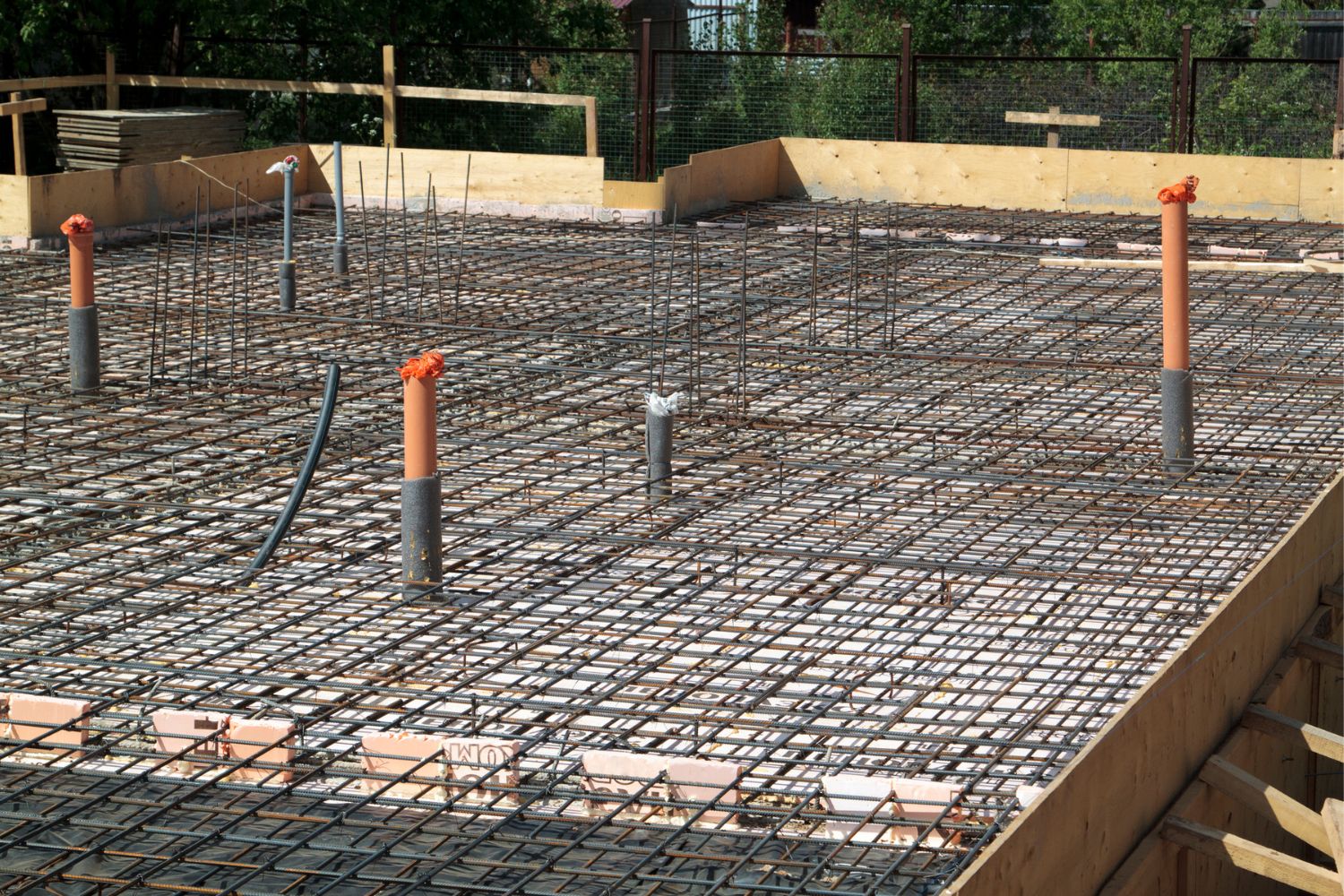
Additional Costs and Considerations
Beyond the primary cost considerations for a foundation or basement inspection, homeowners can also keep in mind the potential costs of permits, foundation repairs, and ongoing maintenance. In some cases, the added cost of an emergency inspection appointment can surprise homeowners too. Having these additional costs and considerations at the forefront of the discussion will help the homeowner identify any extra costs and build a more accurate project budget.
Permits
Obtaining construction permits is a common step in home renovation and remodeling projects. These permits are legal approvals from the local government for the changes that will be made to the home. Since a foundation inspection is intended to assess the existing condition of the home, the cost of a permit can vary. Some areas may not require a permit for a foundation inspection, while in other towns, the homeowner may need to pay between $100 and $400 for a permit.
A local foundation inspector will likely know whether a permit is required for the type of inspection needed. Homeowners can ask the inspector if the cost of the permit will be included in the inspection estimate. If the homeowner hasn’t decided on an inspection company, then they can ask the permit office if they need a permit and how much it will cost.
Foundation Repairs and Maintenance
After a foundation inspection, the inspector will prepare a detailed report and possibly a foundation certificate, depending on the city. The inspector should point out any problems they found and make suggestions to resolve the situation. For instance, if the inspector notices concerning cracks or leaks, then they may suggest hiring a professional to repair the cracks and fix the leaks.
“Costs for repair can increase with severity and length of time,” explains Tracy. “Larger and more persistent problems over long periods of time will require additional products and services for repair.”
Foundation crack repair costs can range from $250 to $800, while leak repairs can cost as much as $7,000, depending on the extent of the damage. Older homes or homes built on shifting ground are more at risk of requiring repairs after an inspection. Homeowners can perform basic foundation maintenance, such as visually inspecting the foundation each month, patching minor cracks, and ensuring that the home has proper drainage. Hiring one of the best foundation repair companies, such as Basement Systems or Ram Jack, can help homeowners quickly fix the foundation and prevent future issues.
| Type of Foundation Repair or Maintenance | Average Cost (Materials and Labor) |
| Crack repair | $250 to $800 |
| Foundation lift | $20,000 to $30,000 |
| Foundation stabilization | $4,000 to $12,000 |
| Leak repair | $2,000 to $7,000 |
| Mudjacking | $500 to $1,300 |
| Pier installation | $1,000 to $3,000 |
| Sump pump installation | $650 to $2,000 |
Urgency
Foundations support a massive amount of weight and protect the home from water and pests, so it’s important to keep up with regular maintenance and make repairs as soon as possible. However, if a disastrous event occurs and causes large horizontal cracks or a foundation shift, then an emergency inspection (and repairs) may be required.
If a severe leak or flood has already occurred, then the homeowner may choose to contact one of the best water damage restoration services (such as ServiceMaster Restore or Servpro) to handle cleanup and restoration. After the cleanup, an inspection is a good idea to help the homeowner understand the condition of the foundation and whether any repairs are needed. Urgent inspection appointments are usually more expensive since the inspector will need to put aside any pending appointments and give priority to the emergency.
Foundation Inspection Cost by Type of Foundation
The cost of a foundation inspection can vary depending on the size, complexity, and accessibility of the foundation. It may also fluctuate based on the type of foundation, whether it’s a concrete slab, crawl space, finished basement, pier and beam foundation, or unfinished basement.
| Type of Foundation | Average Inspection Cost |
| Concrete slab | $300 to $600 |
| Crawl space | $400 to $700 |
| Finished basement | $500 to $800 |
| Pier and beam | $500 to $1,000 |
| Unfinished basement | $350 to $700 |
Concrete Slab
A concrete slab foundation is typically used for sheds, garages, or even some mobile homes. This type of foundation is relatively easy for a professional foundation inspector to quickly assess. The inspector will check the foundation for cracks, splits, surface chips, shifted position, and any signs of leaks or water intrusion.
Generally, a concrete slab foundation will be the easiest and least expensive foundation type to inspect, ranging in cost from $300 to $600. The cost of the job may increase, however, depending on the size and accessibility of the foundation. Homeowners can reduce costs by clearing away any obstacles that could make it more difficult for the inspector to assess the condition of the foundation.
Crawl Space
A crawl space is not as big or accessible as a basement, so the cost to inspect a crawl space may be higher than a homeowner might expect. Inspectors work in a crouched or hunched position while maneuvering through a crawl space—sometimes even on hands and knees.
The restricted movement will cause the inspection to take longer while the pro checks for structural problems, moisture issues, and ventilation. Homeowners can expect to pay between $400 and $700 for a crawl space foundation inspection.
Finished Basement
A finished basement is easier to navigate than a crawl space, yet it typically takes longer and costs more to inspect since the foundation is covered by walls, flooring, and other structures. The foundation inspector may even need to open up parts of the finished wall to get a clear view of the foundation. This process is more common if the inspector or homeowner suspects a serious problem with the structure.
Homeowners with finished basements will generally pay about $500 to $800 for a foundation inspection depending on the size of the home, the complexity of the layout, and the accessibility to the foundation. Moving furniture and other items out of the way can reduce the time an inspector spends evaluating the basement.
Pier and Beam
One of the most difficult types of foundations to inspect is a pier and beam foundation. The pro must check the condition of each beam, pier, and the crawl space that is typically located underneath these structures. The process is difficult and takes time to complete, leading to a higher cost for the foundation inspection.
If a home has a pier and beam foundation, the homeowner can expect to pay $500 to $1,000 for a professional inspection. Not all foundation inspectors have the skills and experience to inspect a pier and beam foundation, so the homeowner will need to research reputable companies near them to find a qualified professional.
Unfinished Basement
Unfinished basements are the easiest type of foundation to inspect. The inspector can walk around freely and has easy access to visually inspect the foundation without the drywall. The average foundation inspection cost is $350 to $700 to have an unfinished basement assessed.
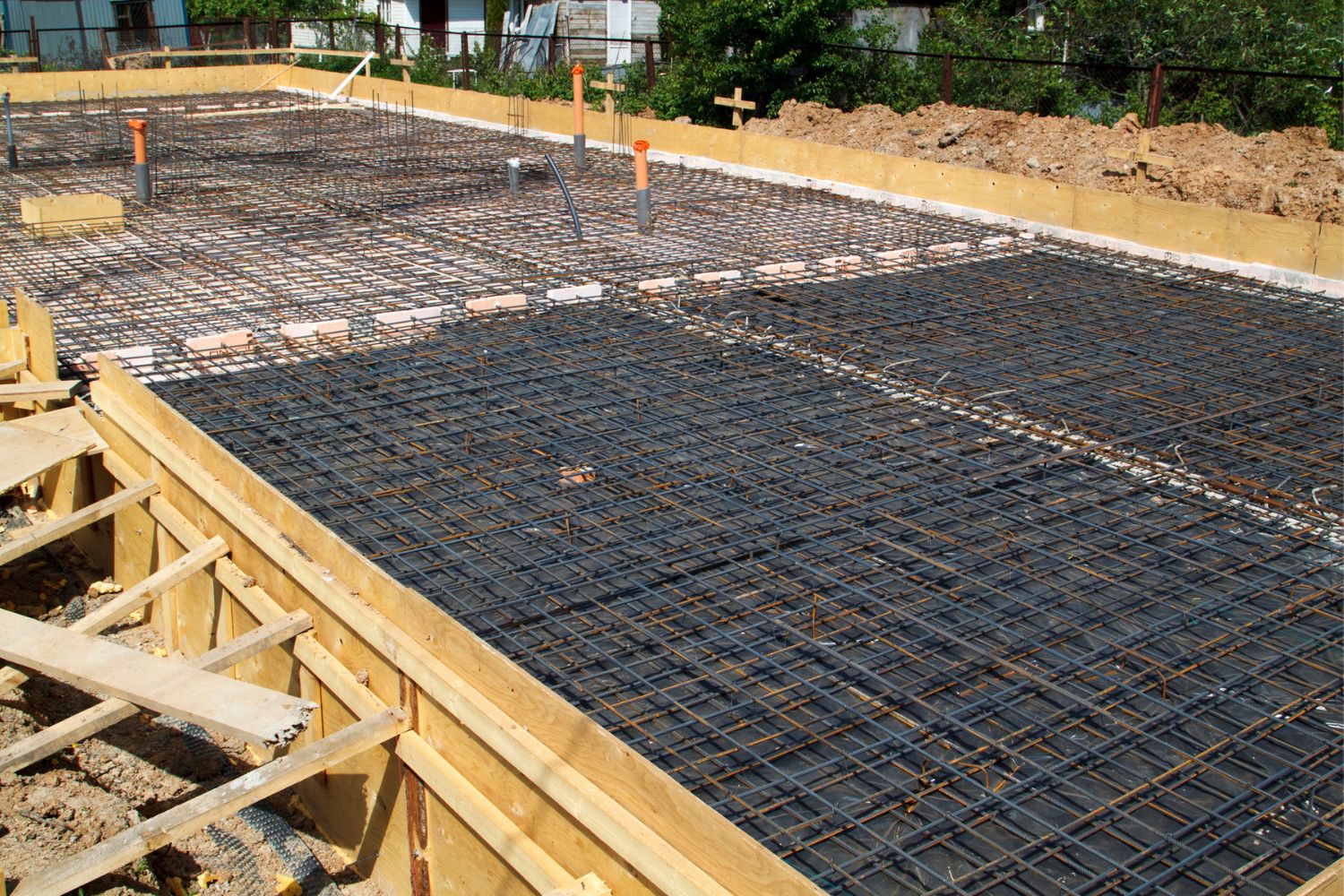
Do I need a foundation inspection?
Experienced DIYers can complete a rudimentary foundation inspection without professional help, but there are times it’s best to have an expert weigh in (such as during a real estate transaction). A professional foundation inspector can provide a detailed report and foundation certificate stating the current condition of the foundation and any recommendations for potential repairs.
Professional inspection is also best after a disaster or when a homeowner spots signs of foundation damage. While homeowners can spot a bowing wall, they aren’t likely to have the expertise to understand potential structural issues behind the problem. Many inspectors have backgrounds in structural engineering, which makes them more than qualified to assess the foundation’s condition for the safety of the home.
Signs of Foundation Problems
The most important reason for a foundation inspection is to ensure the home is structurally sound. If a home has previously experienced foundation problems, homeowners may prefer to have regular inspections for a time to ensure any repairs are still holding up. It’s important for homeowners to identify the signs of foundation problems as soon as possible so they can take immediate action to assess and repair the issues. If the foundation is already cracked or showing signs of damage, homeowners can ask a pro what the foundation repair cost will be.
- Windows and doors may not open or close properly if the foundation has shifted or become uneven.
- Cracked indoor floor tiles can indicate that the foundation is sagging or that there may be a problem with the underlying surface.
- Both horizontal cracks and cracks that zigzag in stair patterns on the foundation wall point to a serious foundation shift or water intrusion problem.
- Bowing walls can bend in or away from the house, indicating that the foundation is undergoing extreme pressure and needs attention. Bowing basement wall repair costs can add up if the problem isn’t addressed quickly.
- Leaks, flooding, and other types of water intrusion within the basement are typically a sign that the foundation is cracked or otherwise damaged.
- The presence of bugs, mice, and other pests can indicate that there are cracks or holes in the foundation, allowing the pests to enter the home more freely.
- Crooked chimneys are a clear sign that the structure of the home is unbalanced and may indicate a sagging or shifted foundation.
- Rotting wood is a serious symptom of pier and beam foundation problems that can go unnoticed but require critical attention when spotted.
According to Tracy, “The biggest and most common problem signs that I recommend homeowners keep an eye out for include sticking windows and doors; cracks in the walls or floors; gaps between windows, walls, or doors; uneven or sagging floors; drywall nail pops; damp walls or leaks; musty smells from mold, rot, or mildew; bowing or bulging basement walls; and cracked, uneven concrete slabs.”
Real Estate Transaction
One of the most common reasons for a homeowner to hire a professional foundation inspector is to verify the condition of the foundation during the purchase or sale of a house. The inspector will assess the foundation, point out any problems, and suggest steps to repair these issues. All inspection details are likely to be compiled in a professional inspection report that can be used to repair the home prior to selling or to bargain with the other party over costs and responsibilities.
While a DIYer with construction experience can perform a basic foundation inspection, it’s not enough for prospective home buyers and mortgage lenders. Additionally, an inspection certificate may be required by lenders depending on the location of the home. Homeowners can check with a real estate agent to determine the inspection requirements in the area.
Routine Maintenance
Another reason to have a professional foundation inspection completed is simple routine maintenance. Homeowners can inspect their foundation once a month for any signs of trouble, but most homeowners and DIYers do not have the level of experience and knowledge of a professional inspector. It’s best for homeowners to schedule a professional foundation inspection about twice a year to ensure that the foundation remains in good condition despite any extreme weather events.
Regularly inspecting the foundation will help homeowners catch any problems before they can become a serious issue, but it’s worth taking preventive steps to help ensure the safety of the home. The best basement waterproofing companies (such as Basement Systems or B-Dry) can easily seal cracks and waterproof the foundation for long-lasting moisture resistance and durability.
Disaster Recovery
An earthquake, tornado, hurricane, flood, mudslide, ice storm, blizzard, or any other significant storm or disaster is ample reason for a foundation to be inspected soon afterward. The inspector can assess the condition of the foundation and identify any problems that may have occurred as a result of the disaster or weather event.
Homeowners are encouraged to get the foundation inspected as soon as possible after a disaster. Serious damage to the foundation could lead to flooding, structural damage, or even the collapse of the entire home. The best homeowners insurance companies (such Allstate and Lemonade) may cover the full or partial cost of the inspection, less the deductible. Exact coverage terms vary between insurance providers and insurance plans, though most standard homeowners insurance policies exclude damage caused by floods and earthquakes.
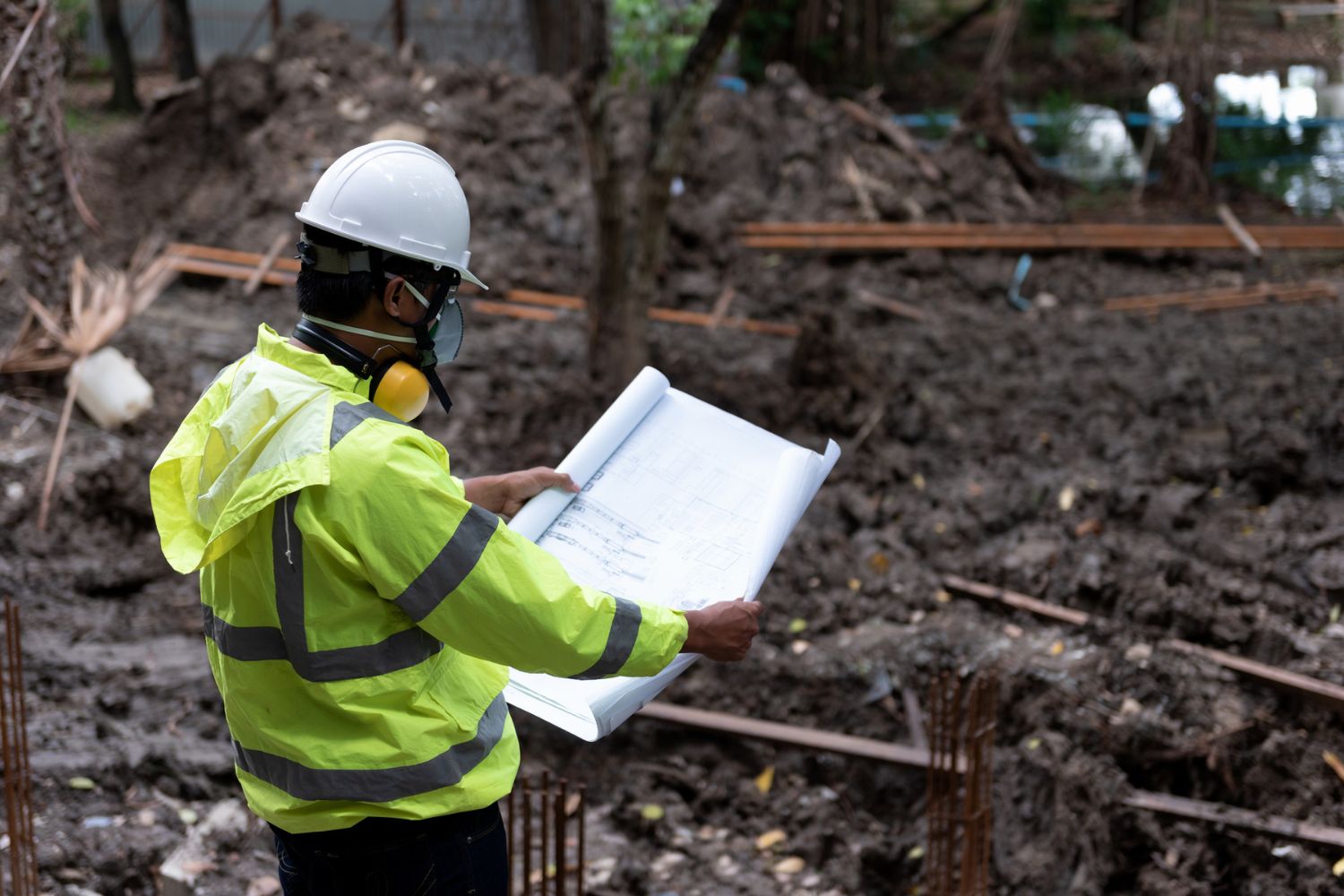
Foundation Inspection: DIY vs. Hiring a Professional
While a basic foundation inspection can be completed by a homeowner who can identify cracks, bowing walls, or pooling water near the foundation, most homeowners won’t have the knowledge and experience to properly identify the root cause. Homeowners are encouraged to perform a visual inspection of the foundation about once a month, but it’s better to hire a professional foundation inspector to assess the foundation about twice a year.
Professional foundation inspectors can quickly identify problem areas and make informed suggestions about how to resolve the issue. They can answer any questions the homeowner may have about the foundation’s condition and provide information about maintaining the foundation.
“Once I’ve completed the evaluation, I provide a diagnosis and identify if a foundation repair is needed,” says Tracy. “If a repair is required, I prescribe a custom plan tailored to fit exactly what the foundation needs, whether it’s encapsulation, waterproofing, concrete lifting or installing reinforcements like support jacks or piers.”
Before hiring a professional, homeowners can do an online search for “foundation inspectors near me” and get quotes from three or more reputable companies. This will narrow down the average foundation inspection cost in their area.
How to Save Money on Foundation Inspection Cost
The cost of a foundation inspection is usually about $600 for the average-size home, but it can range from $300 to $3,000 depending on a range of factors. Given the potential costs involved with this job, homeowners can look for ways to save money on foundation inspection costs, maintenance, and repairs. Some options offer long-term savings with initial up-front investments, while others can help reduce the time an inspector spends on the property.
- Act quickly. A simple crack in the foundation may not be a big deal at first, but if it is allowed to grow, it could cause costly damage to the home.
- Conduct regular foundation inspections. Foundation inspection professionals suggest having the foundation inspected about twice a year, but DIYers can check the foundation once a month to ensure any obvious damage is caught early.
- Prepare the area. Foundation inspection costs are made up of labor rates since no special materials are needed. To reduce the time a pro spends on the inspection, homeowners can move any furniture and outdoor obstacles before the inspector arrives.
- Reduce the need for inspections. By maintaining the home systems that protect the foundation (such as the gutters and downspouts), homeowners may be able to stop problems before they occur.
Questions to Ask About Foundation Inspection
Knowledge is important when homeowners are hiring a professional to conduct an inspection or perform work at the home. For instance, while some of the best home inspection services include foundation-specific inspections, this isn’t always the case. Homeowners can ask about the service offered, company history, licenses, inspection process, and costs to understand the process.
- How much will the inspection cost?
- How long will the job take?
- What will the inspection report include?
- Do I need an engineer’s report to begin repairs?
- Have you inspected other homes built like mine?
- Do I need a permit for foundation repairs?
- What types of foundations have you inspected?
- Are you licensed, bonded, and insured?
- Do I need to be present for the inspection?
- How long have you been in business?
- What kind of access do you need?
- When can you start?
- What kind of documents or blueprints do you need to look at?
- How soon can I expect the report?
- Can you recommend some foundation repair contractors?
- Do you offer a discount for a return inspection after repairs are completed?
FAQs
Foundation inspections are important to ensure the ongoing strength and durability of the foundation and home structure. The answers to frequently asked questions about foundation cracks, conditions that weaken a foundation, and foundation inspection frequency can help homeowners gather more information about this important task.
Q. Do wall cracks mean foundation problems?
While one small crack may not indicate an ongoing foundation issue, larger cracks can point to a more severe problem. This is especially true if the cracks are horizontal instead of vertical, since zigzag or horizontal cracks are often signs of foundation shift, soil heave, or serious water damage.
Q. What weakens a foundation?
Moisture is one of the most common causes of a weakening foundation, which is why it is essential to have proper drainage around the home. Also, soft or low-density soil can cause the foundation to weaken. Similarly, if the soil under the foundation isn’t compacted properly, then this could lead to cracks, leaks, and other foundation damage.
Q. How often should you have your foundation checked?
The seasonal changes that occur between summer and winter can have negative effects on the foundation. Ice, rain, and heat can all affect the stability of the soil around the foundation, especially in areas with less stable soil or with undetected earthquakes. For this reason, it’s recommended to have the foundation inspected by a professional about twice a year.
As Tracy advises, “Scheduling an inspection as soon as you notice an issue is the best way to preserve the integrity of the home.”
Sources: Angi, HomeGuide

